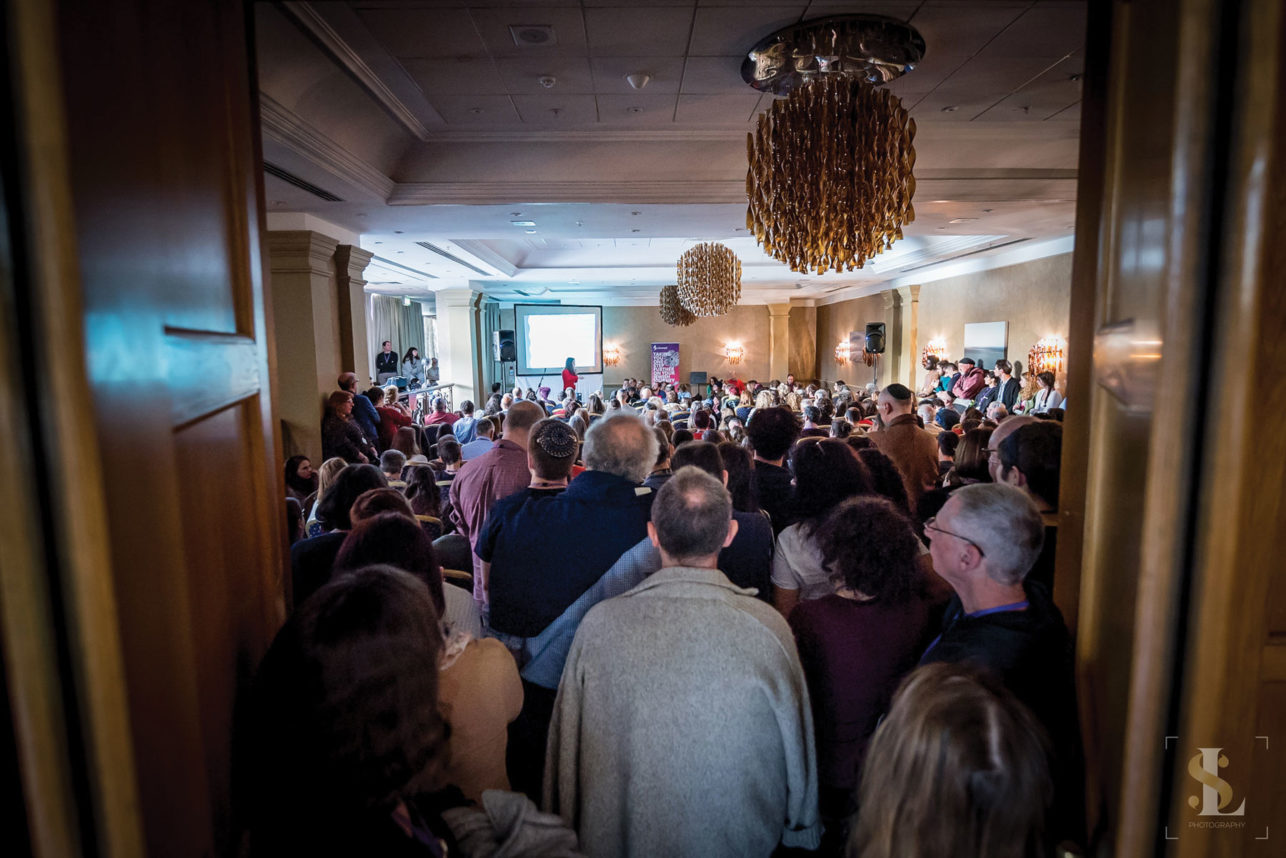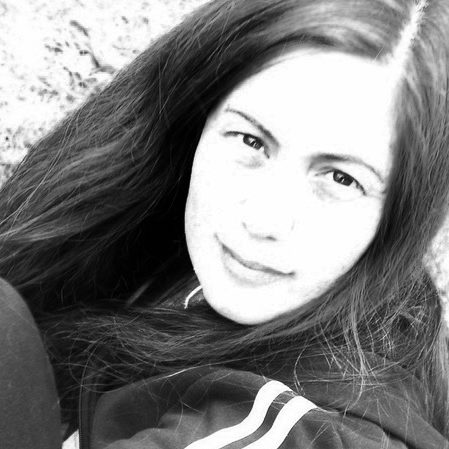 Photos courtesy of Limmud
Photos courtesy of Limmud The worldwide global phenomenon known as Limmud that offers hundreds of sessions on Jewish life to thousands of participants began with a handful of volunteers back in 1980 in the United Kingdom. Today, you can attend a Limmud conference pretty much anywhere in the world. But the largest is held every year in the last week of December in England, where today it is known as Limmud Festival.
In 2019, from Dec. 20-26, close to 2,500 people from around the globe made the trek to this year’s festival at the Hilton Birmingham Metropole, to dine on a smorgasbord of Jewish educational opportunities, offered up by over 300 presenters, all of whom (as is the Limmud way) volunteered their time. The 2019 event also coincided with Hanukkah.
With sessions covering everything from “How to Write Jewish Satire” and “Humorous Stories of Chelm,” to “The Laws of Bikur Cholim” (visiting the sick) and “Israel and the Jewish-Christian Dialogue,” there was something for everyone.
That’s the beauty of Limmud. It continues to find ways to bring in participants from all walks of Jewish life. There was a mixture of both religious and nonreligious Jews and sessions designed to discuss LGBTQ and transgender issues, even down to making certain bathrooms gender neutral, which, in turn, sparked heated debate among those who believed it was a bold and necessary step and those who said they were offended by such a notion.
“I hate tolerance with a passion. I think it should be for lactose or the weather, not people.” — Abby Stein
Limmud began less than two weeks after the U.K. elections and in the midst of the impeachment proceedings against President Donald Trump, so politics — on both sides of the pond — together with issues surrounding anti-Semitism dominated the festival both in sessions and in casual conversation.
While it is common for presenters to offer around three to four sessions at Limmud, a clear breakout star was 28-year-old transgender activist Abby Stein, who held nine separate sessions. Stein asked the same question in each of her sessions: “Who here has had a bar mitzvah?” Men would raise their hands. She’d then ask, “Who here has had a bat mitzvah?” Women would raise their hands. Finally, she’d ask, “Who here has had both?” And she’d shoot her hand in the air.
Stein’s final session based on her memoir, “Becoming Eve: My Journey From Ultra-Orthodox Rabbi to Transgender Woman,” saw religious and nonreligious alike sitting on the floor, holding up walls, even perched on railings to hear her speak.

Said Stein, “I hate tolerance with a passion. I think it should be for lactose or the weather, not people.” She explained that she doesn’t want Jewish teens to come out to their parents and have them simply say, “I love you,” but rather they should say, “This is so exciting. Let’s have a party.” “That is how,” Stein said, “we are taught in Judaism to celebrate people.”
A rising star across the Jewish divide, Stein is determined to ensure that all branches of Judaism embrace every single Jew no matter where they are on their journey.
In an extraordinary look at the history of the Jews in Shanghai, Kaifeng and Harbin, 17-year-old non-Jewish presenter Nicholas Zhang explained what drove him to research the history of Chinese Jews. His great-grandmother went on vacation from China in 1949, leaving behind five children. However, while she was away, the Communist Party took over China and closed off the country from the West. She subsequently made her way to New York and worked in restaurants in Chinatown.
For all the sessions and questions and answers within each session, many of the greatest conversations were held in the lobby bar, wandering the hallways or in the vast dining room at meal times.
“Then she went north to this area called the Catskills,” Zhang said, to much laughter from the audience, and she found a job at the Concord Hotel, owned by the Parker family. “They employed her and were good to her,” he said, and in the 1980s, when his great-grandmother returned to China, the Parkers eventually sponsored all 20 members of her immediate family to come to America, putting them to work in their hotel and their kosher Chinese restaurant.

That’s why, Zhang said, “My mother grew up lighting the candles for Hanukkah while burning incense for Chinese New Year.”
Educational director of the Elijah Interfaith Institute in Jerusalem, Australian-born Peta Jones Pellach spoke about the importance of women in interreligious dialogue. (Full disclosure: I worked with Jones Pellach two decades ago in Sydney and we reunited at the festival.)
“I’m really going to do what is recommended here at Limmud and that’s [talking about] the struggles I’ve had as a woman and on behalf of women,” Jones Pellach said. Advocating for women not being brought to the negotiating table when it comes to the Israel-Palestinian conflict, she said, “There is not a reason in the world why women should be denied to be part of the dialogue toward peace and security.”
Citing a study on the women who participated in negotiating peace between Catholics and Protestants in Northern Ireland in 1998, Jones Pellach said, “What we found is … women contributed to and perhaps were even the essential ingredient in [that] final peace agreement. They have provided the inspiration for women who want to get involved in interfaith dialogue.”
She went on to speak about an initiative in Israel called “Women Wage Peace” and how it should be unacceptable that the top five members of the current Likud party are all men.
On a lighter note was the participation of Israeli-born Noam Shuster, a 32-year-old peace activist and comedian currently on a fellowship at Harvard University to create a one-woman comedy show about coexistence. Raised in Israel’s only Israeli-Arab cooperative village, Neve ShalomWahat as-Salam, Shuster joked about her mixed Ashkenazi and Sephardic (Persian) heritage and how she does her stand-up in three languages: English, Hebrew and Arabic.
“I was the brown kid with black hair,” she said. “In second grade, [Prime Minister Benjamin Netanyahu’s wife] Sara Netanyahu and Hillary Clinton came to visit our school. I sang ‘Shir L’Shalom,’ (Song of Peace) and Sara said to me, ‘Your Hebrew is so articulate.’ That was my life,” Shuster quipped. “This Ashkenazi woman assuming I’m an Arab living in this village.”
Yet, for all the sessions and questions and answers within each session, many of the greatest conversations were held in the lobby bar, wandering the hallways or in the vast dining room at meal times: think a Jewish “Harry Potter,” with plastic tablecloths and minus the instantly appearing food and candelabras.
But like “Harry Potter,” Limmud was, and continues to be, magical.
Kelly Hartog was invited to present at Limmud Festival.























 More news and opinions than at a Shabbat dinner, right in your inbox.
More news and opinions than at a Shabbat dinner, right in your inbox.